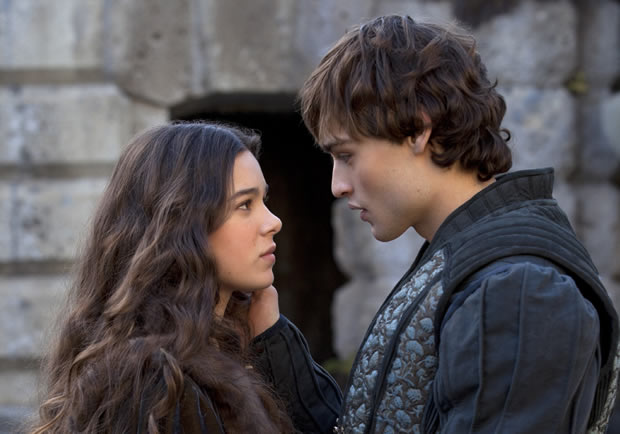No one watches a new version of an old story just to find out what happens. And when the story in question is one of Shakespeare's most well-known tragedies, it has to be a little punchy to distinguish itself from the dozen or so renditions that have come before it.
Or at least just very good.
But at best, Carlo Carlei's Romeo and Juliet is a perfunctory retelling in the most necessary of Shakespeare's original words, dripping with ornamentation, including billowy gowns and dainty poison bottles.
Adapted by Julian Fellowes (Downton Abbey, Gosford Park) and set in the play's original time and place, this retelling is "more inconstant than the wind" (Mercutio's words, not mine). Some slight changes in the script to condense longer lines come off a bit cheesy when compared with some of the more famous monologues in their full splendor. The camera always seems to be a little far or just a bit too uncomfortably close to the actors' faces.
And there's just too much music: the soundtrack sounds like Narnia sprinkled in stardust, too sweepingly dramatic in scenes where a better option was probably no music at all. Perhaps the problem was Fellowes' penchant for a little extra drama, or the acting, which falls all along the talent spectrum. Or both. Either way, it's sub-Shakespeare.
The iconic star-crossed lovers are played by Douglas Booth (whose last movie was LOL with Miley Cyrus) and Hailee Steinfeld (2010's True Grit). Booth is a model, and he makes sense as Romeo until he starts speaking. His performance was bolstered by energetic Mercutio (Christian Cooke) and a dynamic Paul Giamatti as Friar Lawrence.
But we're supposed to be swooning at Romeo's famous lines, and here, we're just not. At least when Leonardo DiCaprio begged in Romeo + Juliet to "give me my sin again," we thought it was cute, whereas Booth's rendering of the same line warranted shame for the sinner. The saving grace of the acting quadrant was Giamatti and Lesley Manville as Juliet's nurse, the perfect apple-cheeked doter. They couldn't save a sinking ship, but they kept it afloat until the end.
Then again, some will find these weaknesses forgivable. But I, as a Shakespeare fan, lament that half the tragic value of the double-death is removed from the famous last act. It's not just that two passionate teenagers departed from the earth by suicide. No, the part that gets us (or at least me) as a reader is that Romeo dies thinking Juliet is dead, and she wakes up just barely too late. And we all say "they just missed each other! If only they had a few moments together!" or something like that.
So—and this can hardly be a spoiler—it came as a shock to me (and a blow to the bard himself) when Booth drinks his poison, but Steinfeld wakes up in time for them to kiss extensively and smile at each other. And then suddenly it's as if he remembers he's dying, throwing Steinfeld into a woeful panic attack as he tells her, to her face, "thus with a kiss I die." The rest plays out as scripted. But this final bit of dramatic affection was the film's kiss of death, turning Shakespeare fans' hopes into bitter gall before the end.
Caveat Spectator
Romeo and Juliet is rated PG-13 for some violence and thematic elements, most of which you know already. There's some brief violence involving swords. Two teenagers are in bed together in PG-rated clothes. There are a couple stabbings, but very little blood.
Taylor Lindsay is a fall intern with Christianity Today Movies and a student at The King's College in New York City.









